No Food, No Medicine, No Electricity: Azerbaijan Inflicts a Humanitarian Disaster on Artsakh
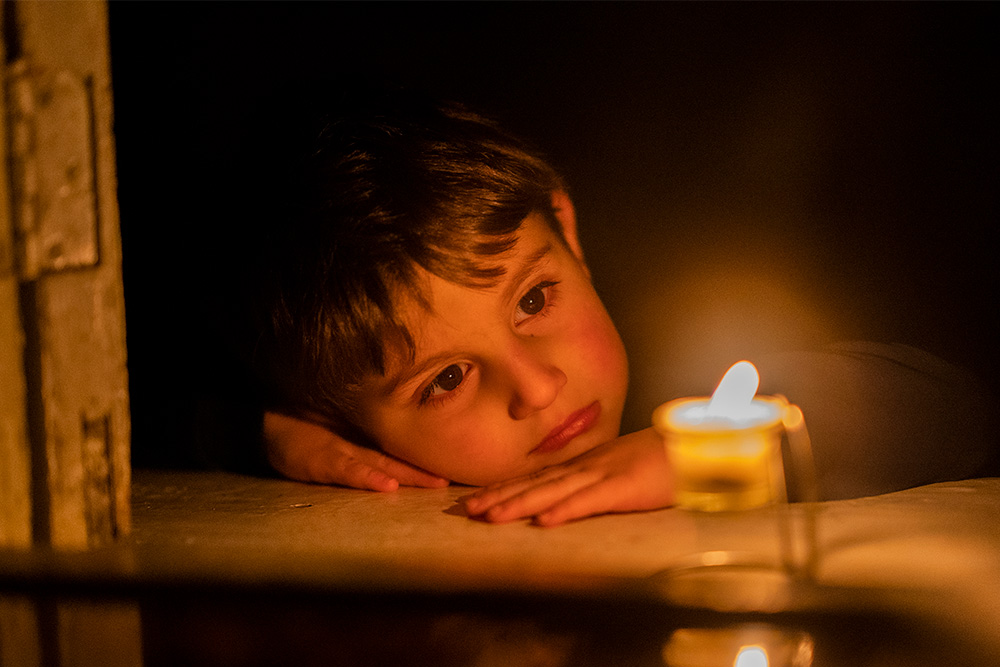
The Armenian enclave of Artsakh is home to 120,000 people, with Armenia responsible for 90% of the supplies that reach them | Contrary to agreements between the two countries, Azerbaijan blocked the route used to deliver basic goods to besieged residents | Enclave president: “If immediate international aid is not provided to the residents, Artsakh will become one big concentration camp”
By Yaron Weiss
The Armenian enclave of Artsakh in the Nagorno-Karabakh region is under a prolonged siege that could spark a famine for its 120,000 residents. Armenia’s government sent a convoy of 19 trucks last Wednesday carrying 400 tons of humanitarian aid, including food, medicine, and other essentials such as flour, cooking oil and baby food. According to sources in Artsakh, the quantity is enough for only one day’s worth of consumption, and so until the end of the siege, such a convoy is needed every day.
Towards the evening, the movement of the convoy was blocked by the Azerbaijani army at a checkpoint it had set up on the Hakari bridge. The Azerbaijani authorities issued a statement saying that “this is another provocation against Azerbaijani sovereignty.” Russian forces are trying to mediate between the sides in order to allow the convoy to move towards Stepanakert, the capital of the region. No solution has yet been reached.
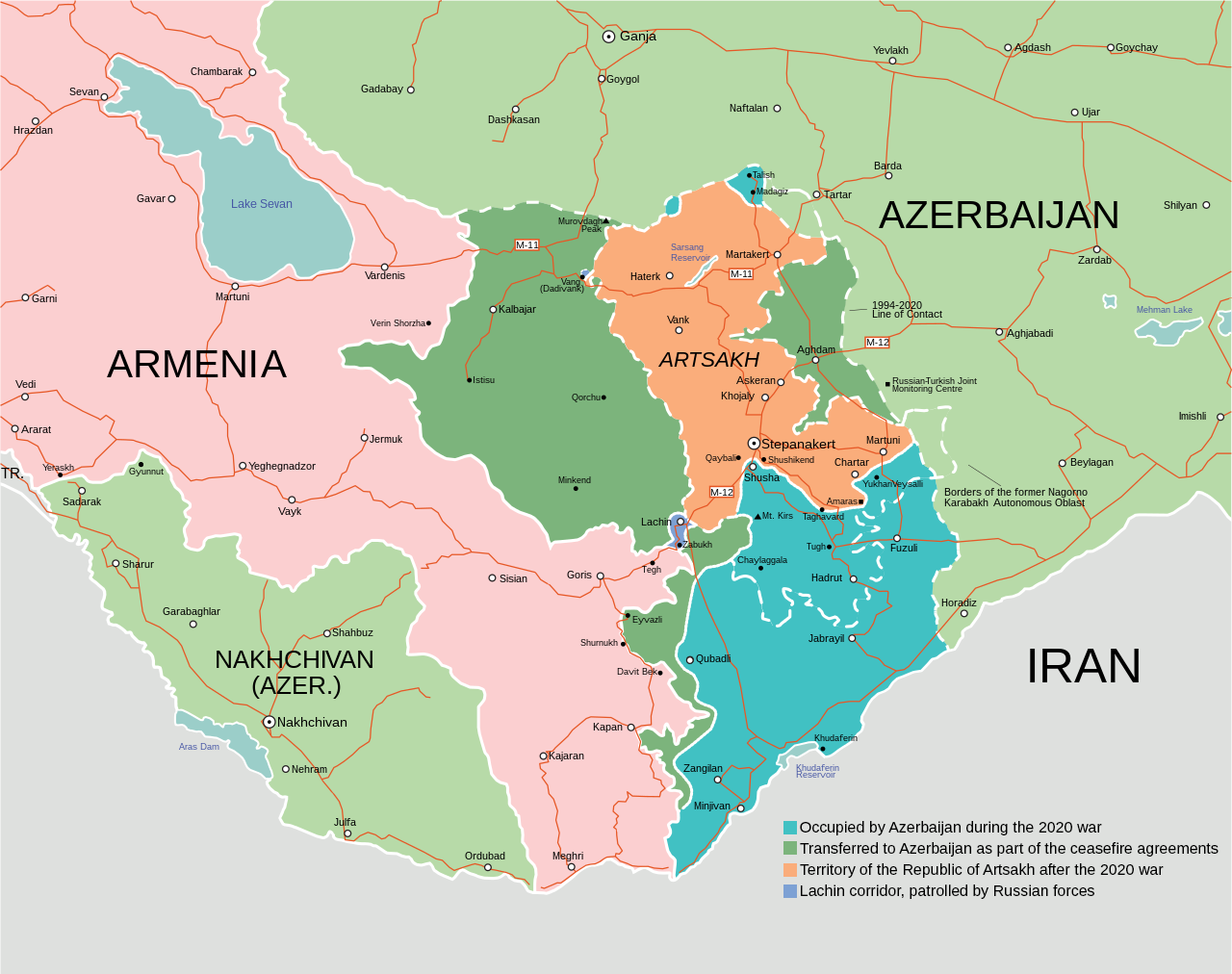
Local journalist and blogger Marut Vanyan tearfully recounts the atrocity. “Vera Narimanyan from the village of Aghabekalanj in northern Nagorno-Karabakh, a single mother of 6-year-old Gita and 3-year-old Leo, left her home early in the morning for the nearby town of Martakert, a 5-kilometer walk, to try to get cooking oil, sugar and basic foodstuffs. She preferred to leave her toddler children sleeping alone at home to save them from walking for long periods in the sweltering heat.
“Later, the children woke up and found their mother missing. They marched alone in the sweltering heat to Martakert to look for her. There they got into a parked car to rest from the long walk. After a lengthy search, their bodies were found inside the vehicle the next day. It turns out they were locked in the car and died of fever and dehydration.”
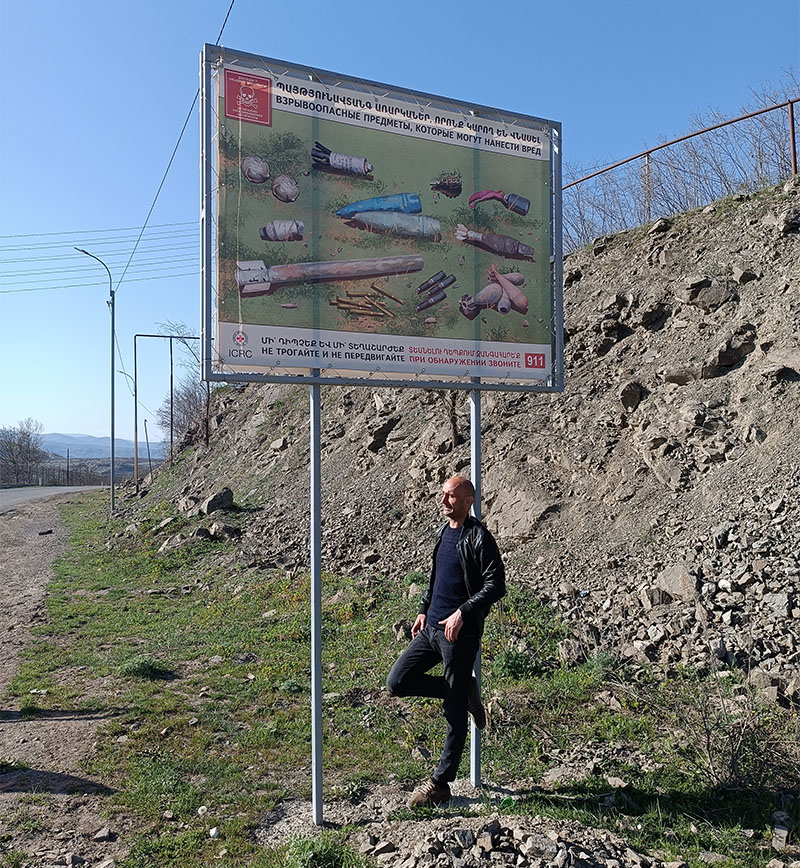
Vanyan tells of his neighbor, a middle-aged woman, who knocked on his door, weeping, pointing to a watermelon she was keeping, the last remaining food item in her home, where she lives with her children and grandchildren.
Due to the lack of fuel, bakeries on the outskirts of Stepanakert find it difficult to transport bread to the shops in the city. Every morning, young volunteers carry sacks full of bread from bakeries to downtown shops to prevent mass starvation in the capital.
The local health ministry has announced an alarming increase in mortality rates. Many residents have recently died of malnutrition. Many do not receive any medical care because they are unable to reach hospitals due to the lack of fuel and road closures. In addition, there has been an alarming increase in pregnancy loss. Many hospitalized patients have died while waiting to be transferred to Armenia for treatment.
Tens of Thousands Face Starvation Amid Ecological Disaster
As a result of the ongoing dispute over control of the region, Azerbaijan has blocked the only access road leading to the enclave since last December. This violates agreements signed in November 2020 between Armenia, Azerbaijan and Russia, which regulate the passage of people and goods into and out of the region.
In addition to blocking the road, Azerbaijan has disrupted the supply of electricity and fuel from neighboring Armenia. The only high-voltage powerline coming from Armenia was cut off by the Azerbaijanis and fuel deliveries have been blocked. As a result, energy consumption in Artsakh has dropped by 50%.
The local energy sector has now been forced to rely on local production systems. During the cold winter months, the inhabitants of Artsakh had to remain confined in their homes for long days without heating, when temperatures were below freezing.

The reliance on local energy sources led to the overexploitation of hydroelectric power plants, which within a few months caused the largest body of water in the region, the Sarsang Reservoir, to almost completely dry up. This is a large-scale ecological disaster that has an impact on the region’s flora, fauna, agriculture, soil and more.
Until recently, Red Cross vehicles were allowed to operate in the area despite the siege, mainly to evacuate seriously ill patients to Armenia. In addition, access to the enclave was granted to a very limited number of supply trucks under the supervision of the Russian Armed Forces, who maintain a buffer between the Armenians and Azerbaijanis. The limited supplies that were allowed in amounted to a small fraction of the supplies that entered the region before the blockade was imposed. The reduced supply has caused food prices to skyrocket and made it impossible for many residents to receive proper nutrition.
Last April, the Azerbaijani army erected a military checkpoint on a bridge over the Hakari River that separates the two countries, which until then had been controlled by the Russian Armed Forces. In June the situation deteriorated further when the Azerbaijani army completely blocked the only access road for Russian Red Cross vehicles and supply trucks.
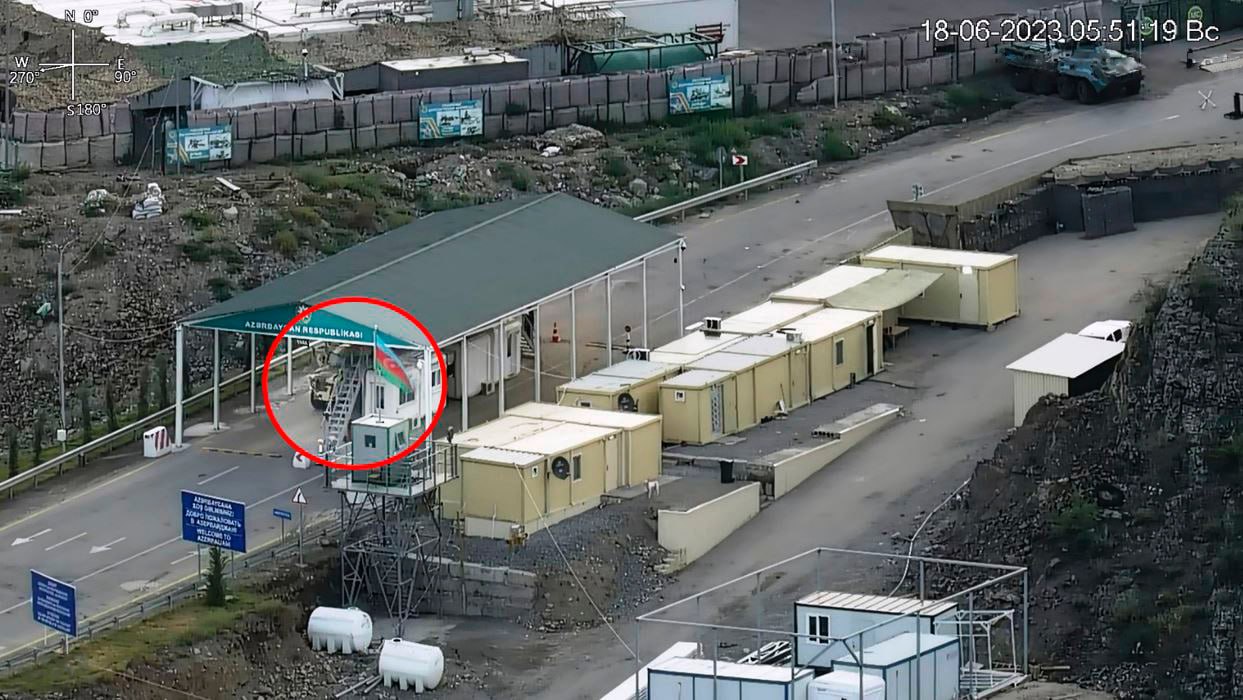
The Russian government, embroiled in fighting in Ukraine, has ordered its troops in the region to avoid friction with Azerbaijani troops. As a result, Russian forces are standing by and not enforcing the agreement between the two countries, which regulates the movement of people and goods to and from the enclave.
The blockade has continued despite international pressure, including a ruling by the European Court of Human Rights in December, decrees by the International Court of Justice in the Hague, resolutions and declarations by the European Parliament, the Council of Europe and human rights organizations such as Amnesty International, among others.
The food shortage is exacerbated, especially considering that before the blockade, about 90% of all food consumed was imported from Armenia. Due to the diminishing availability of fuel and other essential resources, almost all agricultural work has stopped; only part of the wheat harvest has been carried out, and with great difficulty.
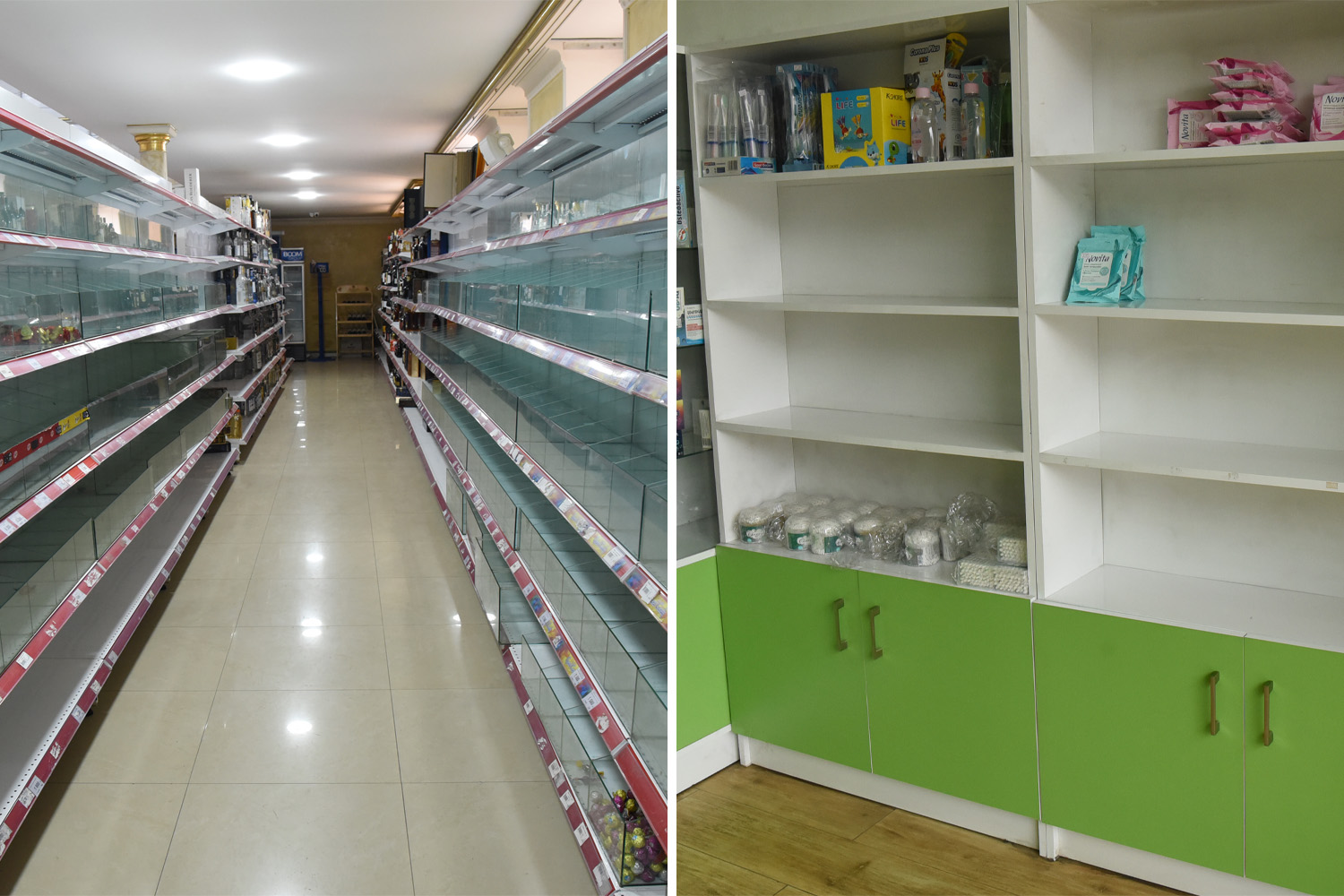
In recent days, as a result of the severe fuel shortage, vehicular traffic has been banned in the enclave’s capital of Stepanakert, which is home to about 60,000 residents. In the absence of fuel for vehicles, agricultural produce cannot be transported from the rural areas of the enclave to the capital.
The farmers who work the fields are exposed to sniper fire from the Azerbaijani side and suffer from harassment. As a result, nearly 2,500 acres of farmland adjacent to Azerbaijani army positions are not being cultivated at all.
The blockade and disruptions in electricity and gas supplies have led to an increase in unemployment that has soared to 60%. The shortage of essential food and vitamins has left tens of thousands in a state of malnutrition, including about 2,000 pregnant women, about 30,000 children, more than 20,000 adults and 9,000 people with disabilities.
In addition to the 120,000 besieged residents, some 30,000 residents of Artsakh who are now outside the borders of the region (mainly in neighboring Armenia) have been prevented from returning home. Thousands have been separated from their families, including a group of children and youth who went on a school trip to Armenia before the blockade was imposed and are now unable to return home.
Meanwhile in Azerbaijan: An International Conference on Freedom of the Press
In sharp contrast to what is happening in the region, last weekend the Media Development Agency of the Republic of Azerbaijan held a conference of an international media forum in the city of Shushi entitled “New Media in the Era of the Fourth Industrial Revolution.”
Shushi is located in the center of Artsakh, on a cliff above Stepanakert. The Azerbaijani army took it over about three years ago. Armenian residents of the city were forbidden to return to their homes. Shushi now serves mainly as a command and control post of the Azerbaijani army. This is a constant threat to the capital of the region.
More than 250 participants from 50 countries, including representatives of 120 media organizations, participated in the conference. The Union of Journalists of Armenia issued a statement condemning it: “Participation in the conference goes against professional and human ethics, because it takes place a few kilometers away from a place where the Azerbaijani government, the organizer of the event, denies basic human rights.
“It is unfortunate that more than 250 journalists preferred the pampering hospitality of the Azerbaijani government in the occupied Armenian city of Shushi while ethnic cleansing goes on in front of their eyes. These journalists seem to prefer to remain silent.
“We express our astonishment that you, dear colleagues, are participating in a media forum in a country whose president suppresses the free press, where there is no freedom of expression at all, whose opposition journalists have fled, are imprisoned, or surrendered. Under these conditions, you are holding a media forum on World Press Freedom Day, with Azerbaijan itself as a symbol of the violation of press freedom.”
At an online press conference on Monday, Artsakh’s president, Arayik Harutyunyan, declared his country a disaster zone. He called on the international community to provide immediate humanitarian assistance to the residents of the region. In his speech, he noted that his country is now the only place in the world that is under complete siege and isolation, without access to humanitarian aid and an international presence.
According to him, if immediate international aid is not provided to the residents, Artsakh will become one big concentration camp, with all the dire consequences thereof. Harutyunyan compared Azerbaijan’s claim that the issue of Artsakh is an internal matter to the arguments of Nazi war criminals at the Nuremberg Trials, who described mass murders as internal matters of the German Reich. He called on the international community not to accept Azerbaijan’s position, and declared that decisive action must be taken before a catastrophe of genocidal proportions occurs.
The author is a specialist covering the countries of the South Caucasus.
Source: Davar

 Ακολουθήστε το
Ακολουθήστε το